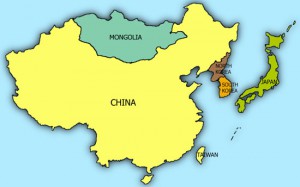
China-North Korea: China did not export any crude oil to North Korea in February, Reuters reported, citing customs data. It marks the first time since early 2007 that no deliveries were made.
Comment: China exports crude by means of a pipeline to North Korea's west coast refinery at Sinuiju. The pipeline has a throughput capacity of 1 million tons per year, but in the past few years it has carried about 500,000 tons, or just under 42,000 tons per month.
No other steady source of crude has been reported since before the end of the Warsaw Pact. Russian Far East companies send some crude to North Korea to have it refined at the east coast refinery and shipped back to the Far East, usually paying the North Koreans in kind.
The lack of Chinese crude supplies in February implies that North Korea has had to draw on fuel stocks to sustain the nationwide training. This is a chronic, strategic and systemic vulnerability of North Korea. China can make North Korea stop.
If China exports no crude in March, North Korean national readiness will have been degraded significantly because of the extra demands on supplies of food and fuel that are not being replaced. Whatever provocation North Korea plans must take place before the fuel runs low and the civilians begin to rebel or desert their mobilization stations. Contacts along the China border say the exercises will last until the US and South Korean exercises end.
China-North Korea: President Xi Jinping has sent a message to North Korean leader Kim Jong Un stressing that the two countries are “friendly neighbors,” according to the Korean Central News Agency on 21 March.
In message dated 16 March, Xi thanked Kim Jon Un for sending a congratulatory message to him on his election as the president of China, the report said. Kim sent the message on the 14th, the day Xi became the country's leader.
“Under the new situation I wish to join you in promoting the steady development of the Sino-DPRK traditional relations of friendship and cooperation and contributing to bringing earlier the prosperity of the two countries and peace and stability of the region,” Xi was quoted as saying.
Comment: Three points are significant. First, Xi, like his predecessor, did not use the traditional formula for describing Chinese relations with North Korea: closer than gums and teeth. “Friendly neighbors” signifies a public downgrading of the relationship.
Second, Xi referred to “the new situation” which echoes a theme in his speech to the National People's Congress. Xi's appreciation of the “new situation” underpins the national pursuit of the Chinese Dream.
Third, Xi's statement about bringing peace and stability is a reminder of China's opposition to North Korean nuclear tests and other provocations, which threaten peace and cause instability.
Nevertheless, the North Koreans seem pleased that he replied to Kim's congratulatory message. However, it is a breach of protocol to quote private communications between heads of government and state.



